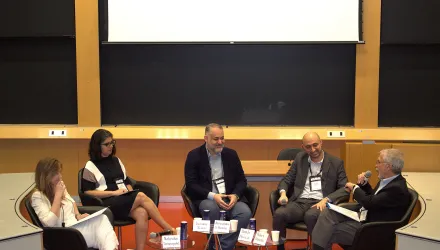Abstract
In recent years a wide array of capacity building programs have been established to improve the ability of developing countries to produce and use scientific knowledge about global environmental change. In this paper, I discuss the results of a comparative study of four of these programs: three established to improve estimates of greenhouse gas emissions and a fourth established to produce reliable forecasts of seasonal to interannual climatic variability. The study concludes that capacity building programs need to pay greater attention to the social networks in which the production, validation, and use of scientific knowledge takes place, particularly as they begin to develop initiatives to link science to policymaking in developing countries. The study makes three recommendations in particular: (1) capacity building programs should pay particular attention to establishing, alongside the necessary skills to produce knowledge, broadly-based "institutionalized skepticism" capable of subjecting knowledge production to critical scrutiny for applicability, relevance, reliability, and appropriateness in particular circumstances; (2) capacity building programs should also focus attention on building capacity in the social study of science to facilitate better understanding of local conditions for the successful production, validation, and uptake of science in social, economic, and political decisions; (3) capacity building programs should develop broader frameworks in which to evaluate their activities, corresponding more fully to the range of possible avenues for failure in "transplanting" scientific knowledge from one cultural context to another.
Miller, Clark. “Extending Assessment Communities to Developing Countries.” Harvard Kennedy School, September 1, 1998
The full text of this publication is available via Harvard Kennedy School.



